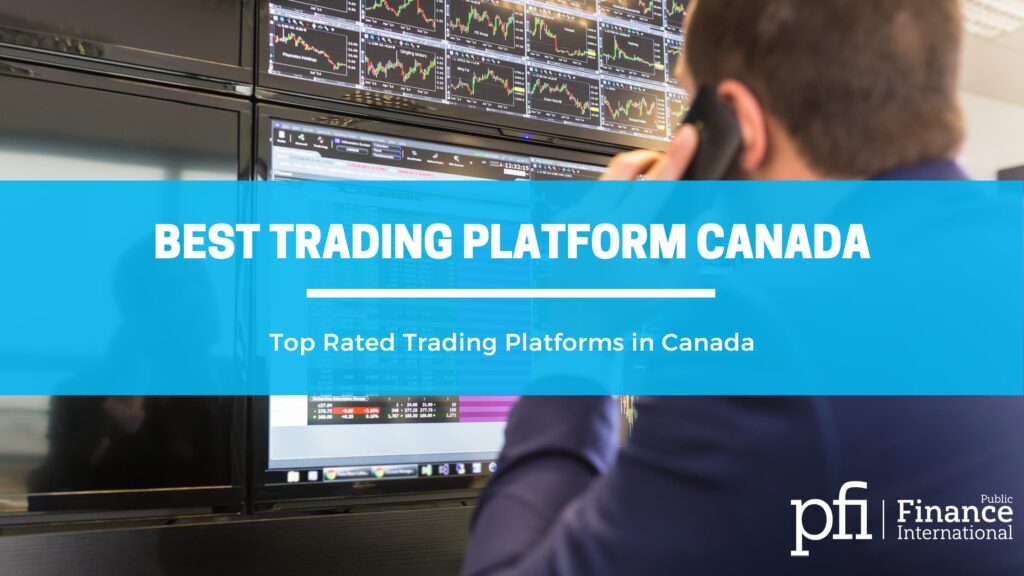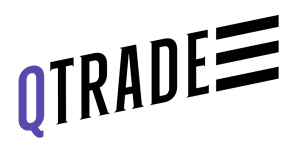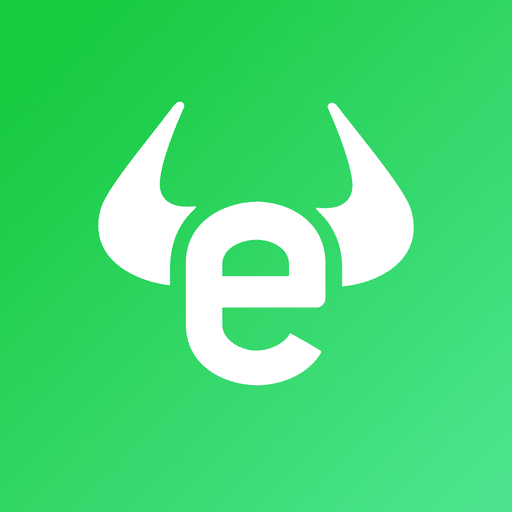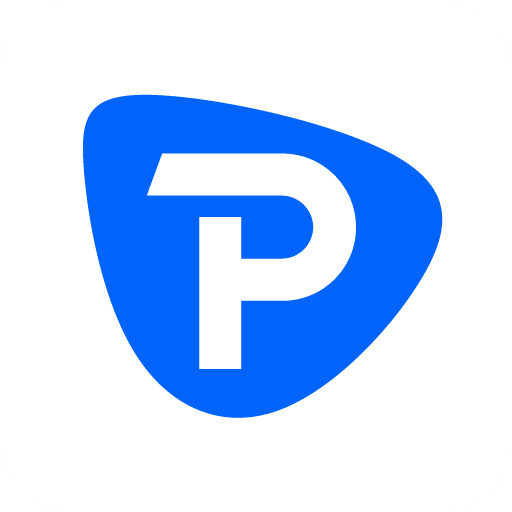In our guide, we go over the best trading platforms in Canada for 2023. We base our research on important factors such as security, regulation, ease of use, account opening, fees, commissions, customer support, and more.
Read on to find out which is the best stock broker in Canada.
Table of Contents
- List of the Top Online Brokers in Canada 2023
- Best Online Brokers in Canada in Detail
- Interactive Brokers – Best Online Trading Platform Canada Overall
- XTB – Best CFD Trading Platform Canada
- Questrade – Best TFSA and RRSP Investing Platform Canada
- Wealthsimple – Good Online Broker for Canadians
- BMO InvestorLine – Bank Owned Broker Canada
- Qtrade Direct Investing
- RBC Direct Investing
- Scotia iTRADE
- TD Direct Investing
- Compare Trading Platforms in Canada
- How To Pick an Online Brokerage in Canada?
List of the Top Online Brokers in Canada 2023
We've rounded up the best investment brokers in Canada below based on several factors. Check out the list of the best brokerage firms below.
- Interactive Brokers – Best Trading Platform Canada Overall
- XTB – Best CFD Trading Platform Canada
- Questrade – Best Trading Platform in Canada for GICs
- Wealthsimple – ETF Trading Platform Canada
- BMO InvestorLine – Best Online Broker Canada for Banking Services
- RBC Direct Investing – Great Trading Platform Canada for Education
- Scotia iTRADE – Commission-Free ETF Trading Platform Canada
- TD Direct Investing – Easy To Use Trading Platform Canada
Best Overall
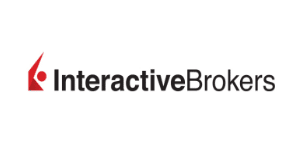
PFI Rating 4.9
Best CFD Broker
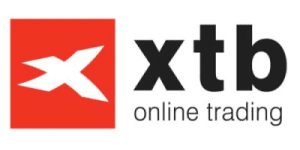
PFI Rating 4.9
Good for ETFs
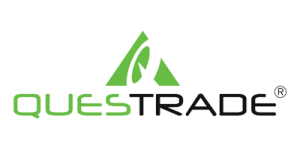
PFI Rating 4.8
Best Online Brokers in Canada in Detail
There are many online trading platforms available in Canada. It can be a daunting task to pick the best. Some brokers offer a variety of products and assets – some are great for stocks, others for CFD trading, and some stand out as cryptocurrency exchanges. Below you will find our list of the best online trading platforms in Canada based on various factors such as fees, deposit methods, support, regulation, and safety.
Interactive Brokers – Best Online Trading Platform Canada Overall
Interactive Brokers is our top pick as the best online broker in Canada.
The firm offers Canadians low trading fees and a wide range of investment products and markets. Premium research and trading tools are offered through the platform.
Interactive Brokers was founded in 1978 and is regulated by top-tier authorities.
They offer stocks, ETFs, Options, Futures, Forex, Cryptocurrencies, Gold, Bonds, Mutual Funds, and Hedge Funds.
Interactive Brokers has fast order execution thanks to its IB SmartRouting technology. This makes it the best choice for active day traders.
While this broker caters well to active traders, beginners will find it hard to navigate the platform. Less experienced traders should look elsewhere.
- Regulated by Top Authorities
- Wide Market Access
- Low Fees
- Low Minimum Deposit
On Interactive Brokers' Official Website
XTB – Best CFD Trading Platform Canada
XTB offers the best CFD trading platform for Canadian traders. It has low fees for forex trades, which makes it stand out from other competing brokers.
The firm offers fast and inexpensive deposits and withdrawals. Opening an account is a quick and user-friendly process.
On the negative side, there are high fees for stock CFD trading. The available investment products are limited to only CFDs and forex.
Forex and CFDs are leveraged products and can result in losses that exceed your deposits. Please ensure you fully understand all of the risks.

PFI Rating: 4.7/5
Questrade – Best TFSA and RRSP Investing Platform Canada
Questrade is a great Canadian broker founded in 1999. We found it best for their easy-to-use trading platform and TFSA and RRSP accounts.
Questrade offers a flexible solution and a great alternative to holding investments at banks.
On the negative side, Questrade doesn't offer good research, and some advanced functionalities require a subscription.
On Questrade Official Website

PFI Rating: 4.6/5
Wealthsimple – Good Online Broker for Canadians
Wealthsimple Trade stands out for its zero-fee stock and ETF trades. This is a great choice for Canadian retail traders wanting managed investing.
The platform has a simple design, giving you access to many US and Canadian stock and ETF markets.
A downside to Wealthsimple is that they offer a limited portfolio creation and higher than average management fees.
On Wealthsimple Official Website

PFI Rating: 4.4/5
BMO InvestorLine – Bank Owned Broker Canada
BMO InvestorLine is the Bank of Montreal’s trading platform. It offers great resources for Canadians that are new to investing.
The brokerage offers tools aimed at new investors. This includes online tutorials and demos, bi-weekly educational emails, and webcasts by expert traders.
BMO InvestorLine has a big downside though. Customer service is known is to be slow and unresponsive at times. Customers only have the option to contact them via telephone.
On Official Website
Qtrade Direct Investing
Qtrade Direct Investing is a solid all-around brokerage choice for Canadians. It’s best for traders looking to trade ETFs.
Qtrade Direct Investing offers a user-friendly website along with robust stock research. Just recently they re-branded and optimized their entire client experience. The platform provides excellent portfolio analysis and management tools.
Its fees are competitive, but they aren’t leading in this category. Quarterly fees may apply for account balances lower than $25,000. The quarterly fees for accounts under $25,000 are waived if conditions are met.
On Official Website
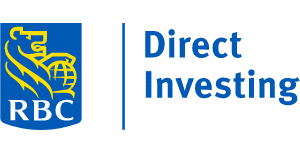
PFI Rating: 4.2/5
RBC Direct Investing
RBC Direct Investing is a platform offered by the Royal Bank of Canada. This brokerage service offers Canadian traders in-depth research reports.
The firm’s customer service is efficient and reliable. Education resources are great for beginners and a demo account is available to try out trading strategies.
RBC Direct Investing's biggest downside is its outdated mobile app software. Also, there are limited withdrawal and deposit options.
On Official Website

PFI Rating: 4.2/5
Scotia iTRADE
iTRADE is best for active traders. The firm offers discounted commissions and several premium trading platforms that cater well to experienced Canadian traders.
Scotiabank customers have the option to link their trading and bank accounts. This makes managing your finances a whole lot more convenient.
Traders have access to thorough market research supplied by Scotiabank. There is also a demo account available.
While the brokerage does provide educational resources, this isn’t recommended for beginners or long-term retirement investors.
On Official Website

PFI Rating: 4.2/5
TD Direct Investing
TD Direct Investing is one of the most expensive brokers available in Canada. If you’re looking for high-end trading tools and premium research, then the cost will be worth it.
The broker gives you access to both simple and more advanced trading platforms. Its mobile app offers a similarly smooth experience.
If you’re looking for a budget broker, you’ll have to look elsewhere. Both trading and non-trading fees are steep compared to its competitors.
On Official Website
Compare Trading Platforms in Canada
Compare trading platforms below:
| Trading Platform | Interactive Brokers | XTB | Questrade | Wealthsimple | BMO InvestorLine | Qtrade Investor |
|---|---|---|---|---|---|---|
| Founded | 1978 | 2002 | 1999 | 2014 | 1988 | 1999 |
| Regulation | SEC, CFTC, FCA, NFA | FCA, CySEC, Fincancial Services Commission in Belize | IIROC | IIROC | IIROC | IIROC |
| Offering Of Investments | Stocks, ETFs, Options, Futures, Currencies, Cryptocurrencies, US Spot Gold, Bonds, Mutual Funds, Hedge Funds | Forex, Indices, Commodities, Stock CFDs, ETF CFDs, Crypto | Stocks, ETFs, Forex, Options, CFDs, Bonds, GICs, Precious Metals, Mutual Funds, IPOs | Stocks, ETFs, Cryptocurrencies | Stocks, ETFs, Options, GICs, Mutual Funds, Bonds | Stocks, ETFs, Options, GICs, Mutual Funds, Bonds, IPOs |
| Minimum Deposit | $0 | $0 | $1,000 | $0 | $0 | $0 |
| Demo Account | Yes | Yes | Yes | Yes | Yes | Yes |
| Withdrawal Fee | 1 Free Withdrawal per Month | 20 USD for withdrawals under 100 USD | $0 - $150 | 2.50% | 2.50% | $0 (Fees apply for registered accounts) |
| Inactivity Fee | No | $10 monthly after 12 months | No | No | No | No |
| Deposit Methods | Bank Wire, Credit Cards, ACH, Mail a check, Rollover, Online Bill Pay, Trustee-to-Trustee, SEP Contribution | Bank Transfers, Credit and Debit Cards, Skrill | Credit Cards, Debit Cards, e-Wallets, Bank Transfer | Credit Cards, Debit Cards, Bank Transfer | Credit Cards, Debit Cards, Bank Transfer | Electronic Funds Transfer, RESP Account Transger |
Compare Trading Platform Fees
Compare the trading fees below:
| Trading Fee | Interactive Brokers | XTB | Questrade | Wealthsimple | BMO InvestorLine | Qtrade Investor |
|---|---|---|---|---|---|---|
| EURUSD | Spreads | 0.1 - 0.5 | 1.9 | 1.9 | N/A | N/A |
| GBPUSD | Spreads | 0.1 - 0.5 | 2.1 | 2.1 | N/A | N/A |
| Bitcoin | 0.12% - 0.18% of trade value | 3.5 USD | N/A | 1.5% - 2% | N/A | N/A |
| Apple Fees | $0 commissions | 0.30% | 1¢ / share (min. $4.95 - max. $9.95) | $0 for Canadian Stocks + 1.5% Conversion Fee | $9.95 flat fee | $6.95 (Investor Account) $8.95 (Investor Plus Account) |
| Tesla Fees | $0 commissions | 0.30% | 1¢ / share (min. $4.95 - max. $9.95) | $0 for Canadian Stocks + 1.5% Conversion Fee | $9.95 flat fee | $6.95 (Investor Account) $8.95 (Investor Plus Account) |
| Amazon Fees | $0 commissions | 0.30% | 1¢ / share (min. $4.95 - max. $9.95) | $0 for Canadian Stocks + 1.5% Conversion Fee | $9.95 flat fee | $6.95 (Investor Account) $8.95 (Investor Plus Account) |
| S&P 500 Fees | N/A | N/A | N/A | N/A | N/A | N/A |
| Options Fee | $0.25/contract - $0.65/contract | N/A | $9.95 + $1/contract | N/A | $9.95 flat fee + $1.25/contract | $8.75 flat fee + $1.25/contract (Investor account) $6.95 flat fee + $1.25/contract (Investor Plus Acount) |
| Mutal Fund Fees | No Transction Fee Funds - 0.00 USD and Lesser of 3% or 14.95 for Transaciton Fees | N/A | $9.95/trade | N/A | N/A | $8.75 |
| ETF Fee | $0 commissions | 0.30% | Sell 1¢ / share (min. $4.95 - max. $9.95) | $0 for Canadian ETFs + 1.5% Conversion Fee | $0 for Canadian ETFs | $0 for selected Canadian ETFs and $8.75 for Others |
How To Pick an Online Brokerage in Canada?
Before you choose a trading platform in Canada, you should research the following.
Regulation
Regulated brokers should be registered with at least one financial regulating body. Canadian brokers are regulated by the Investment Industry Regulatory Organization of Canada (IIROC). Brokers need to follow the rules set by the IIROC.
Traders vs active traders vs long-term buy and hold investors
Active trading is buying and holding an asset for only a few seconds or minutes. You then sell the asset shortly after. This takes advantage of brief fluctuations in the price of the asset. Some brokers reward active trading by lowering trade commission rates.
Long-term investing is more passive. It involves buying and holding trades for months or years. Brokers that don’t charge fees for inactivity are best for long-term investors.
Different brokers will reward different investment styles. You need to make sure that your broker’s commission rates suit your trading style.
Account Security
Account security features help ensure that your trading account is protected from hackers and malware. Most online brokers make customer account security a priority because of growing cyber threats.
You must be aware of the security policies of your online trading platform. You should choose a brokerage that offers features such as two-factor authentication.
Fees & Commissions
Stock brokers charge a wide range of different fees. You need to be aware of all the fees that your broker charges in advance. It's important to know how to determine the commission charges on all of your trades.
Annual fees are better than per-transaction fees. This means that your broker won’t earn commissions through unnecessary transactions.
Assets Available
There is a range of financial assets available for you to invest your money into. Stocks, bonds, options, and derivatives are the most common types.
You need to make sure your brokerage offers the investment products that you're interested in.
Account Types
Brokerage services offer many different types of accounts to investors. These include cash accounts, retirement accounts, and margin accounts.
You should be aware of which accounts your broker offers. There might be different trade fees and account minimums for each type of accounts.
Professional Accounts
A professional trader is someone who earns a living by trading other people's money. Some brokers offer accounts specifically for professional traders. Professional traders usually trade products with higher risk, such as binary options.
Retail Accounts
A retail trader is someone who trades their own money but does not trade for a living. Some brokers cater more for retail traders with lower fees and no minimum account balance.
Demo Accounts
Demo accounts, also known as paper trading accounts, are offered on many trading platforms. These allow new customers to try out trading strategies by investing fake virtual money in real-time markets. This is particularly useful for beginner traders.
Educational Resources
If you're a beginner, you'll need advice on how to analyze data and diversify your portfolios.
Beginners need to choose a broker that offers educational resources. These include video tutorials, forum discussions, and how-to articles.
Trading platforms that encourage communities and crowdsourcing are great for beginners. This allows you to copy trade strategies and discuss ideas with other traders.
Research Tools Available
You must be aware of the growth prospects of a company before investing in it. Access to thorough records of a company’s history will showcase its earnings and performance on the market.
A good online broker should provide a variety of market research. If you're a beginner, you'll need advice on how to analyze this data and diversify your portfolios.
Trading Tools Available
You should look for a brokerage that offers enough tools for thorough security analysis. This includes research on market data, analyst ratings, and real-time news.
A good broker will include historical price data from issuing companies in their stock profiles. You should also have access to financial statements, earnings reports, and dividend payments.
Mobile Trading
Mobile trading is trading that is done on an app on your smartphone. A mobile trading platform is a mini version of a proper desktop trading platform.
If you're looking for an easy way to access your accounts on-the-go, then you need a broker that offers a mobile trading platform.
Order Execution
Order execution is when your brokerage completes a buy or sell order on your behalf. You send all your orders to your broker to be executed.
You should look for a broker that has fast order execution. This is particularly if active trading is your investment strategy.
Is Day Trading Legal in Canada?
Yes, day trading is legal in Canada. It is regulated by the Canadian government. The government sets trade rules and has a process to document income and losses made from trading. Profits made from day trading are taxed.
